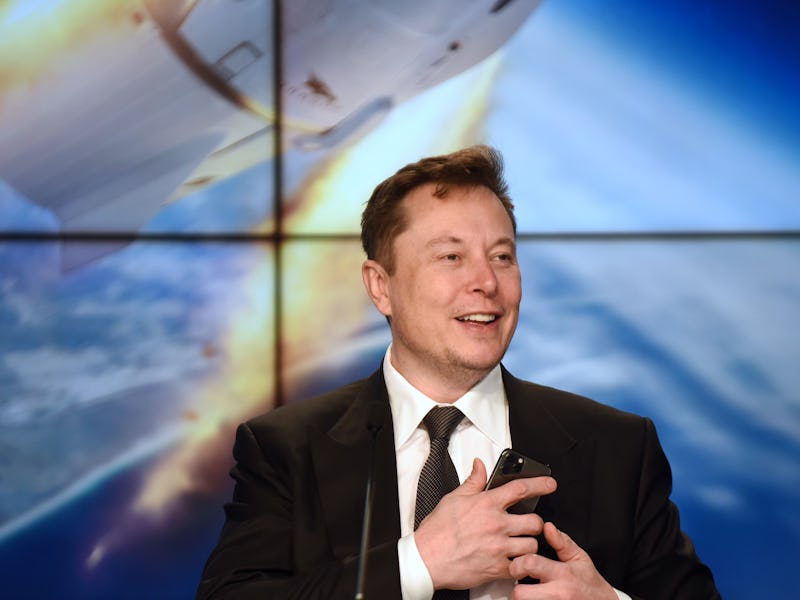SpaceX: Why Elon Musk is saying ‘your GPS just got slightly better’
The space-faring firm has completed its latest launch, and it means big things for the phone in your pocket.

SpaceX, the space exploration company headed up by Elon Musk, has just given satellite navigation a boost.
On Tuesday, the company launched a Falcon 9 rocket for its first United States Space Force mission. The rocket took off at 4:10 p.m. Eastern time from Space Launch Complex 40 at Cape Canaveral Air Force Staton in Florida. On board was a Global Positioning System satellite, more commonly known as GPS. The mission sent up the third satellite for the new GPS III project, a major upgrade to the constellation used by people around the world to find their way.
"Your GPS just got slightly better," Musk wrote on Twitter moments after the GPS III satellite was deployed. The Falcon 9 used to send up the satellite, the first flight for this specific booster, landed on the droneship Just Read the Instructions after launch.
Elon Musk's post.
The launch is a big moment for GPS, which has become almost ubiquitous with the rise of the smartphone over the past decade. No longer just for military personnel to identify their location, GPS now supports a wealth of imaginative applications. Find your way to Starbucks in seconds, locate Pokémon in your local park, even set alerts to remind you of things before you leave the office. GPS has become the invisible backbone of an unbelievably long list of services.
GPS III, Lockheed Martin explains, will make GPS three times more accurate. Gene McCall, former chair of the Air Force Scientific Advisory Board, wrote in National Defense Magazine in April that this suggests accuracy would increase from 28 inches to a very precise nine inches.
Of course, that's going to be pretty tough to notice in practice. Perhaps that's why Musk used the phrase "slightly better." But GPS III also offers other benefits that improve the aging constellation – benefits like stronger protections against military jamming, longer-lasting satellites, and better interoperability with other countries' constellations.
Pokémon on your smartphone.
GPS: what is it? – The technology, Encyclopedia Britannica explains, uses signals from satellites in the sky to understand a user's location. A receiver measures how long it took for a given satellite's signal to reach Earth, a figure somewhere around a tenth of a second. It multiplies the time by the speed of a radio wave, 186,000 miles per second, to work out the distance. The second-generation satellites orbit somewhere around 20,000 kilometers above the Earth's surface.
The receiver takes readings from three other satellites, and uses these imaginary lines to work out the receiver's longitude, latitude and altitude based on its position relative to the four satellites.
That's the very basic idea. The receiver does more calculations to account for other issues that could distort those readings. And when we talk about a "receiver," we normally think of a smartphone – but a modern smartphone uses data from other sources like cell phone towers and Wifi hotspots, bringing it all together to make readings faster and more accurate.
And while "GPS" is used in casual language to refer to any sort of navigation like this, the United States' GPS constellation that first started in 1978 is just one player in this global field. GLONASS, or GLObal NAvigation Satellite System, was first launched by the Soviet Union in 1982. Beidou was first launched by China in 2000. Galileo, from the European Space Agency, got its first experimental satellite in 2005. The iPhone 8 and later support GPS, GLONASS and Galileo.
The GPS III satellite ready to go.
GPS III: why else is it better? – GPS received its first satellite in 1978. A further nine launched over the coming decade, but this early constellation was more experimental. Encyclopedia Britannica explains that 24 second-generation satellites launched from 1989 to 1994.
The United States Air Force is planning 10 third-generation GPS satellites. SpaceX launched the first in December 2018, and Lockheed Martin launched the second in August 2019.
Beyond triple the accuracy, the new constellation is set to offer better protection for military applications with eight times stronger signals. These strong signals should make it harder to jam. Each satellite will also last for 15 years, around double the length of time as other GPS craft in the sky. It should also offer compatibility with other satellite systems, making it easier to interoperate with other systems.
GPS may be the invisible backbone of today's applications, but that backbone just got a little bit stronger.
This article was originally published on